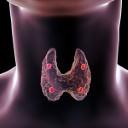-
Living Beyond a Diagnosis
Judy Pearson was surprised by the demands of cancer survivorship. Here, she offers tips on how to look at life after cancer.
by Judy Pearson
-
When Young Adults Need Care
For adolescents and young adults who have been diagnosed with cancer, caregivers can play an influential—but often overlooked—role in providing help and support.
by Carly Flumer
-
Drug Dependence After Breast Surgery
A study indicates that some breast cancer patients who receive mastectomy and reconstruction may be at risk of persistent drug use following surgery.
by Marcus A. Banks
-
Beating the Bully Inside
To gain control over fear of my breast cancer recurring, I called on lessons learned as a 5-year-old confronting the neighborhood bully.
by Joan Harris
-
Planning to Survive
Survivorship care plans can prepare cancer patients to get the best medical care and maintain their quality of life following treatment.
by Carly Flumer
-
A Missed Conversation
Despite national guidelines urging oncologists to bring up risks of infertility posed by cancer treatment, many young cancer patients are never told about these risks or counseled on their fertility preservation options.
by Marcus A. Banks
-
A Modern Family
My diagnosis with colorectal cancer at age 32 affected my fertility. As a result of my experiences, I help others who have been diagnosed with cancer understand their choices related to fertility preservation and their options for becoming a parent.
by Allison Rosen
-
Drinking After a Diagnosis
A study illuminates the alcohol consumption habits of cancer survivors.
by Jen Tota McGivney
-
“Congrats! You Have the ‘Good’ Cancer”
Many people know thyroid cancer as a cancer type with a relatively good prognosis, but the disease still has profound effects on patients and survivors, writes thyroid cancer survivor Carly Flumer.
by Carly Flumer
-
How Disability Insurers Monitor Patients Online
Companies that offer disability insurance may monitor patients' social media accounts to determine if they qualify for the benefits being received.
by Kate Yandell
Cancer Talk
Treatment Combination Improves Survival in EGFR-positive Lung Cancer
Adding chemotherapy to targeted therapy improves outcomes for people with advanced EGFR-positive non-small cell lung cancer.
by Sandra Gordon
Lessons From 20 Years Living With CancerMultiple myeloma survivor Jonathan Gluck reflects on uncertainty, and the scientific progress that has kept him living with cancer for more than two decades.
by Eric Fitzsimmons
The Enduring Importance of Cancer Disparities ResearchOpening session from AACR conference highlights how perseverance and adversity have informed cancer disparities research over the years.
by Eric Fitzsimmons
Most Cancer Survivors Don’t Meet Healthy Diet GoalsDespite research linking fruits and vegetables to cancer survival, many people do not change their eating habits after diagnosis.
by Darlene Dobkowski














